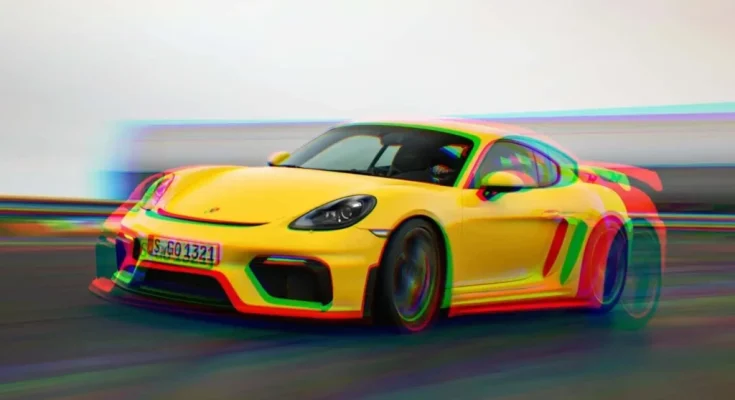he gasoline-powered Boxster, Cayman, and Macan make up a third of Porsche’s sales. Soon, they will be discontinued.

Porsche has decided not to invest in developing a new generation of the Boxster, Cayman, or the gasoline-powered Macan. This indicates that the team in Zuffenhausen is prepared to phase out three of its most popular gas cars.
The 718 models were already discontinued in Europe due to the General Safety Regulation (GSR2) that took effect last week. Earlier this year, in a statement to Motor1, Porsche 718 spokesperson Oliver Hilger mentioned that keeping the Boxster and Cayman in Europe was simply “not possible.”
“The implementation of the directive not only necessitates technical adjustments, such as in the control units, but also requires significant changes to development processes,” Hilger notes. “For instance, management systems will need to be developed and certified for cybersecurity. Cybersecurity risks must be managed, documented, and formalized throughout the vehicle’s lifecycle. These factors could not be considered during the development of the 718 combustion models because the requirements were neither known nor applicable at that time. Retrofitting these measures is not feasible.”
 Porsche 718 Cayman GT4 RS
Porsche 718 Cayman GT4 RS
The mid-engine models will continue to be available outside the EU, but not for long. This week, Porsche’s production manager Albrecht Reimold announced that the last gas-powered Boxster and Cayman will be assembled in mid-2025. The Macan, which has also been discontinued in Europe due to GSR2 legislation, will remain in production in other regions until 2026.
However, sales figures indicate that Porsche’s decision to phase out three popular gas cars is a risky move.
 Porsche Boxster
Porsche Boxster
In 2023, Porsche delivered 87,355 Macan SUVs and 20,518 Boxster and Cayman models to customers. Given that the German automaker sold a total of 320,221 cars last year, the 718 and Macan models together accounted for just over a third of sales, totaling 107,873 units.
The numbers for the first half of 2024 are similar. Porsche sold 39,167 Macans and 11,886 units of the 982-generation sports cars. With a total of 155,945 cars shipped to buyers through June, these popular crossover, coupe, and convertible models again represented roughly a third of the volume, with 51,053 units.
The electric Boxster and Cayman are set to debut in 2025. This raises the question: Will enthusiasts embrace the absence of a combustion engine? Transitioning to EVs also means the manual gearbox will become obsolete. No matter how impressive the electric replacements are, Porsche is likely to lose some customers who only want a performance vehicle with an internal combustion engine.
ricing could also pose a challenge; history shows that EVs are almost always more expensive than their combustion counterparts. Phasing out the conventionally powered 718 will make purchasing a two-door Porsche with a gas engine significantly more expensive. Currently, a base Cayman costs $74,795 after destination and handling fees, while the cheapest 911 starts at $122,095. This $47,300 difference could alienate many buyers.

ricing could also pose a challenge; history shows that EVs are almost always more expensive than their combustion counterparts. Phasing out the conventionally powered 718 will make purchasing a two-door Porsche with a gas engine significantly more expensive. Currently, a base Cayman costs $74,795 after destination and handling fees, while the cheapest 911 starts at $122,095. This $47,300 difference could alienate many buyers.

While most purists likely won’t mind the absence of a gas engine in the Macan, it would have been ideal to see another generation of the ICE Boxster and Cayman. However, that opportunity has long passed, with the EV replacements announced in 2022.
Porsche remains committed to its goal of having EVs make up more than 80 percent of its annual shipments by 2030. To achieve this, the next-generation Cayenne will also be an EV. Additionally, another large SUV, slated to debut in the coming years, will be exclusively electric. This new SUV will be positioned above the Cayenne and is expected to offer three-row seating.

Kevin Giek, head of the Taycan model line, recently told Autocar that an electric Panamera could complement the Taycan without conflict. He explained that a Panamera EV would appeal to customers seeking a larger, more luxurious model, while the Taycan targets those interested in a sportier electric vehicle.
Regarding the iconic 911, Porsche plans to retain its rear-mounted engine throughout this decade. The 2025 Carrera GTS will introduce a hybrid variant, but a fully electric version is not expected before 2030. Porsche is exploring synthetic fuels, producing eFuel since late 2022 from water and carbon dioxide using wind energy in Chile.
In recent developments, Reuters reported that the European People’s Party, the largest political group in the European Parliament, aims to relax the ban on new car sales emitting CO2. A draft document obtained by the news agency suggests intentions to ease regulations on CO2 emissions reductions.
pathway for cars to use synthetic fuels, provided their production processes are carbon neutral. This amendment to proposed legislation came after pressure from Germany.
Despite the legislative developments, Porsche remains committed to advancing its electric vehicle (EV) initiatives. The effectiveness of replacing multiple gasoline-powered cars with electric models before 2030, let alone by 2035, remains to be seen.



